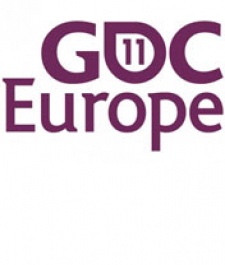"I'm surprised I'm only speaker about Android today, because Android is definitely a big player in the mobile space," said Marc Hehmeyer, Fishlabs' CTO, kicking off the Smartphone and Tablet Games Summit.
Citing comScore, he commented, "Android is growing at 5 times the rate of iOS in the US at the moment".
Still, that doesn't mean it's easy to port and monetise even a successful iOS game such as Fishlabs' Galaxy on Fire 2.
"We're making less revenue from Android compared to iOS. The premium model is complicated on Android," he said.
As a minor example, there are two versions of the game available on the Android Market; one paid version for the Xperia Play smartphone and one enhanced freemium version for Nvidia's Tegra 2 chips.
Up rezzing the deal
Taking about the Xperia Play version, the art assets were the same as the iPhone 4 version as its Adreno 205 GPU can handle about 40 million polygons/sec compared to iPhone 4's 28 million p/s.
More work went into the coding; notably things such as audio (using the FMOD middleware), and new control methods and a cleaned up user interface.
When it came to Tegra 2 however, the chipset has around 2.5 times more graphical capabilities than iPhone 4; around 71 million polygons/second. (iPad 2 is comparably to Tegra 2 however.)
Because of this capacity, the graphics - textures and meshes - were all completely reworked. In this way, the mesh density and texture resolution for the game's ships have been increased four-fold.
More importantly, it has full vertex and pixel shader support via OpenGL 2.0, so whereas the iPhone 4 version (OpenGL 1.x) just uses a diffuse texture, the Tegra 2-optimised version adds specular and normal. This additional work took around 4 man-years .
Still, you also have to be aware of difference in texture compression between hardware. Tegra 2 uses DXT 1, 3 and 5, while iPhone uses Imagination Technologies' PVRTC.
Tricks and traps
It's not all good news for Android however.
Fragmentation in terms of OS remains an issue. Particularly when you're looking to make highend games such as Galaxy on Fire 2, tablets remains a small percent of Android devices (around 1.3 percent).
A more technical issue is that you can't debug code within the Android Native Developer Kit.
"This is a big bummer for us. [Google] can do better than this," Hehmeyer warned.
There was a similar problem with Xperia Play, where final firmware for the launch hardware was different to the development versions of hardware provided to Fishlabs. Nor is there support for OpenGL 2.0 within the emulator so you have do this on an actual device, although Nvidia has since released some tools to help in this.
Other oddities of Android software/hardware can be differences in accelerometers, multi-touch standard plus the usual range of different CPU/GPU and screen sizes.
Bits and pieces
Distribution is another issue, especially as Galaxy on Fire 2 HD is a 200 MB file. Android Market only currently allows a 50 MB download.
Hence, Fishlabs has to host the remaining 150 MB download. This can be expensive, and it can get very expensive if pirates try to use your server to host the 150 MB download for each 50 MB stub that's pirated. For this reason, Fishlabs spends a lot of time dealing with pirates.
Indeed, the piracy rate of the Android version of Galaxy on Fire 2 is estimated around 90 percent, compared to 50-60 percent on iOS.
Hehmeyer's biggest complaint however was issues with Google's lack of control in terms of an official anti-piracy policy, especially because much of the security infrastructure is handled using Java APIs not via native.
"Being creative is not a solution," he said, referring to Google's talk about piracy at GDC 2011.
This sort of problem came to a head with the Android in-app billing bug between April to 2nd July.
This resulted in users trying to buy Galaxy on Fire 2 HD (it's a freemium game), being charged multiple times and then calling up Fishlabs' support for to complain.
"It was a nightmare. We had to refund our customers manually and pay back the additional costs," Hehmeyer said. "Our support team was crushed by this issue."
GDCE 2011: Fishlabs' Hehmeyer on the challenges of Android's 90% piracy rate
#gdce And the opportunities of Tegra 2





















